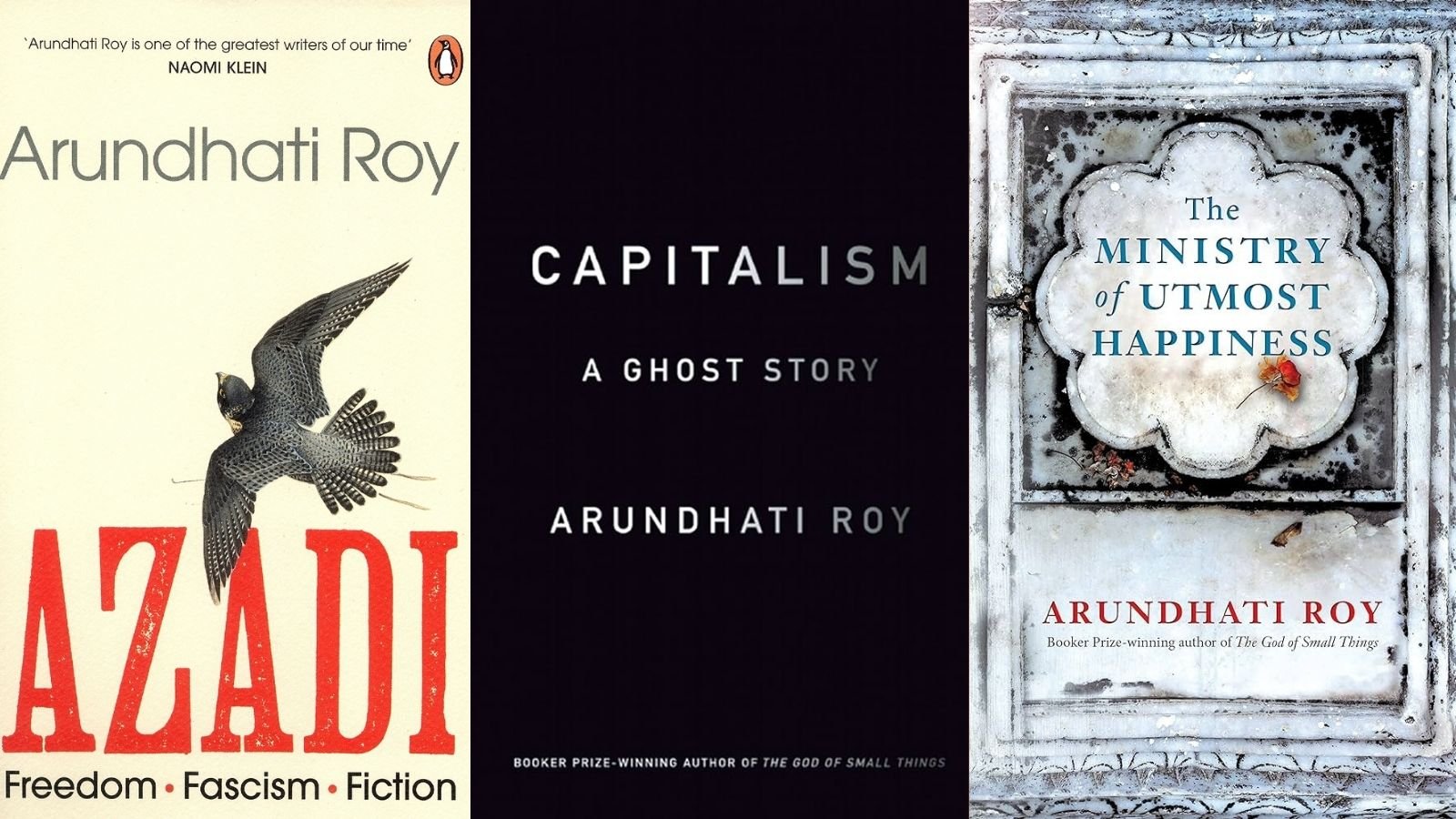Wednesday Wisdom: 5 Best Arundhati Roy’s Books To Read

Suzanna Arundhati Roy, acclaimed Indian writer, actress, and activist, achieved fame with “The God of Small Things,” a Man Booker Prize winner. Born to women’s rights advocate Mary Roy, Arundhati is an influential human rights and environmental activist. Beyond writing, she ventured into television and film, working with her husband on projects like “In Which Annie Gives It Those Ones” and “Electric Moon.” Her commitment to addressing contentious topics has stirred controversy, earning her the moniker “an independent, mobile republic.” She penned numerous cultural and political essays, compiled into a five-volume set by Penguin India, and was honored with the Lannan Prize for Political and Cultural Freedom in 2003. Discover five essential books by Arundhati Roy.
The God of Small Things
“The God of Small Things” by Arundhati Roy is a poignant novel delving into themes of love, loss, and the profound impact of social injustice. Set in the vivid backdrop of Kerala, India, it follows fraternal twins Estha and Rahel as they navigate the complexities of their family and community. Roy’s lyrical prose immerses readers in the sights and sounds of Kerala, creating a mesmerizing and haunting atmosphere. The characters grapple with their personal struggles, but at its core, the novel portrays Estha and Rahel’s heart-wrenching story, marked by the loss of childhood innocence due to uncontrollable events. Roy’s portrayal is raw yet compassionate, evoking deep empathy. “The God of Small Things” is a powerful, enduring work that lingers in the mind, offering beautiful language, compelling storytelling, and a profound exploration of the human condition.

The End of Imagination
“The End of Imagination” is a compelling collection of Arundhati Roy’s nonfiction speeches and essays, spanning from 1999 to 2004. These pieces provide insightful commentary on major global events of the time. Offering a neutral perspective on subjects like India’s dam-building system, Hindu nationalism, nuclear programs, imperialism, the US invasion of Iraq and Afghanistan, and corporate globalization.The End of Imagination is a challenging and thought-provoking book that is essential reading for anyone who wants to understand the world we live in today. Roy’s writing is both beautiful and devastating, and she challenges us to think critically about the choices that we are making as a society. Roy’s powerful arguments and unbiased approach make this a must-read for those seeking an informed view of crucial global developments.

AZADI: Freedom. Fascism. Fiction
Arundhati Roy’s “Azadi: Freedom. Fascism. Fiction.” compiles essays from 2018 to 2020, a time of global political turmoil. She delves into the intricate relationship between freedom, fascism, and fiction while sharply critiquing India’s Modi government. Her writing is passionate, scholarly, and lyrical, weaving personal anecdotes, historical insights, and political analysis. She addresses issues like the plight of Kashmiri Muslims and corporate greed under Modi’s rule. Roy emphasizes the importance of preserving civil liberties and dissent in the face of authoritarianism. She also highlights the role of storytelling in envisioning a more just world. “Azadi” is an indispensable read for democracy advocates, leaving a lasting impact.

Capitalism ‒ A Ghost Story
Arundhati Roy’s Capitalism: A Ghost Story is a searing critique of the dark side of globalization and its impact on India. Roy argues that capitalism is a system that is inherently exploitative and destructive, and that it has created a world in which the rich get richer and the poor get poorer. Roy focuses her critique on the Indian experience, but her insights are relevant to readers around the world. She writes about the displacement of millions of people by dams and mining projects. The exploitation of workers in factories and sweatshops, and the destruction of the environment in the name of profit. Roy’s book is a powerful and disturbing read, but it is also an essential one. She offers a clear-eyed and unflinching look at the human cost of capitalism. And she challenges us to think about how we can create a more just and equitable world.

The Ministry of Utmost Happiness
Arundhati Roy’s “The Ministry of Utmost Happiness” is a powerful novel set in modern India. It follows Tilo, a transgender woman, and a diverse cast of characters, each facing their own struggles. From Delhi’s slums to Kashmir’s conflict, Roy delves into themes of love, loss, and resilience. Tilo’s journey intertwines with others, creating a complex tapestry. Roy’s writing is dense and poetic, celebrating human connection and the strength of the human spirit in adversity.

- Art
- Causes
- Best Offers
- Crafts
- Dance
- Drinks
- Film
- Fitness
- Food
- Giochi
- Festival
- Gardening
- Health
- Home
- Literature
- Music
- Networking
- Altre informazioni
- Party
- Religion
- Shopping
- Sports
- Theater
- Wellness



